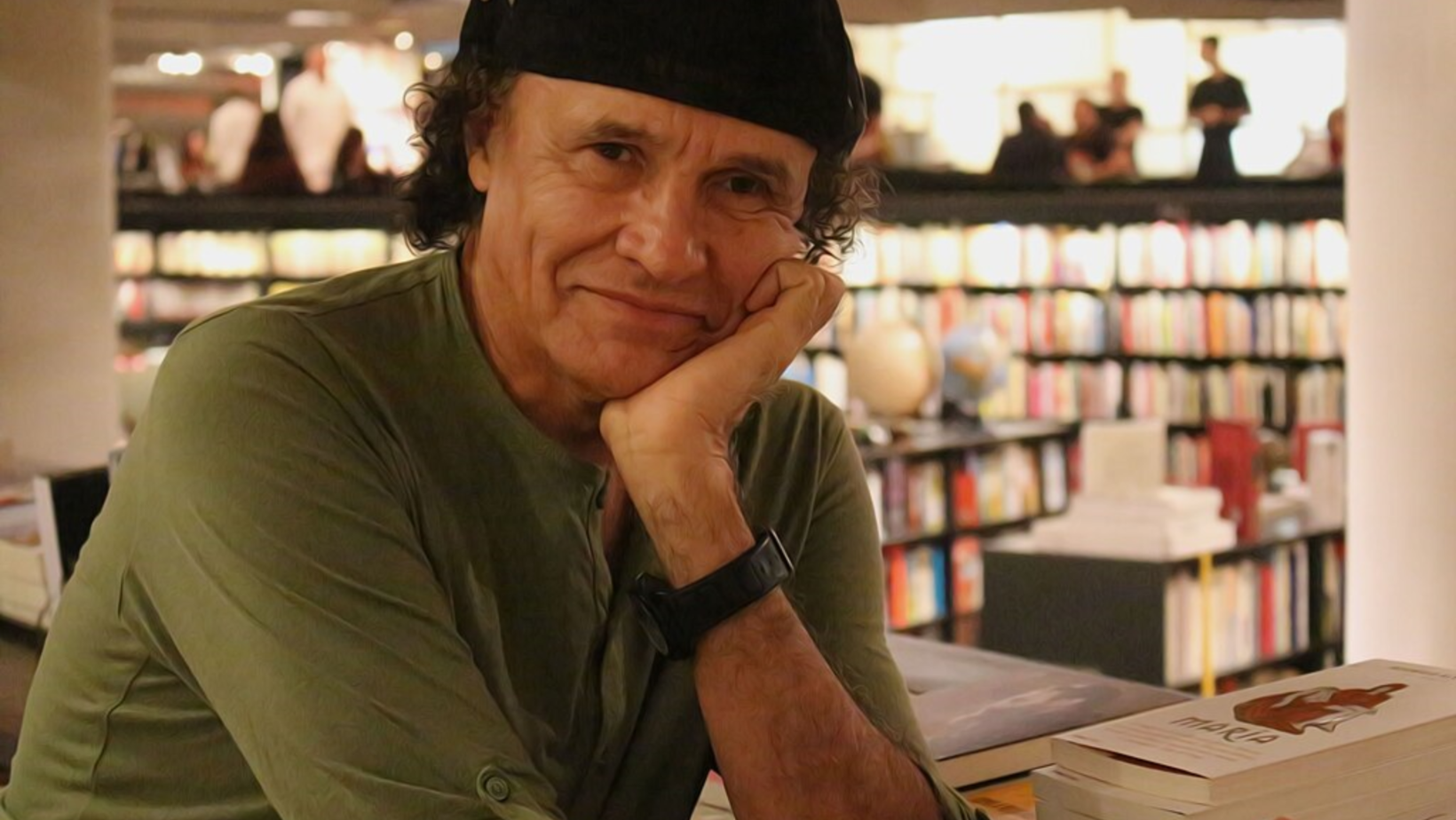
With a literary career that spans 35 years and more than 100 published books, the writer, speaker and storyteller Rogério Andrade Barbosa has left an indelible mark on children’s and youth literature. A former United Nations volunteer in Guinea-Bissau, Barbosa is celebrated for his contributions to literary events and book fairs around the world, including countries such as Germany, Cuba, Italy, Mexico, Peru, Angola, Mozambique, Cape Verde, São Tomé and Príncipe, Ethiopia, Dominican Republic and Portugal. His work, translated into several languages such as English, Spanish, German, Swedish and Danish, resonates with readers of different cultures and ages.
Rogério also participated in IBBY (International Board on Books for Young People) conferences in several global cities, such as Cartagena (Colombia, 2000), Basel (Switzerland, 2002), Cape Town (South Africa, 2004), Macau (China, 2006), Copenhagen (Denmark, 2008) and Accra (Ghana, 2019). His presence at these events not only enriches international literary discussion, but also inspires new writers and educators with his unique stories and experiences.
Among the numerous distinctions received by Barbosa, we highlight the Highly Commended Awards for Children and Young People by the FNLIJ (National Children’s and Young People’s Book Foundation), The White Ravens in Germany (1988 and 2001), the IBBY Honor List in Switzerland (2002), the Vasco Prado Trophy at the National Literature Day in Passo Fundo (2003) and the Brazilian Academy of Letters Award for Children’s and Youth Literature in Rio de Janeiro (2005). Furthermore, he was honored with the 2007 ORI Award by the Secretariat of Cultures of Rio de Janeiro for his prominence in valuing the black matrix in the cultural formation of Brazil, and received the Selo Distinção Cátedra Unesco de Leitura by PUC-Rio. These recognitions underscore the importance of his work and its lasting impact on literature and education.
What inspired you to become a writer and storyteller, especially focusing on children’s literature?
Before the writer comes the reader, as I read a lot during my childhood and youth. And those who like to read generally like to write too, even if it’s letters or diaries like I did. But I didn’t dream of being a writer. It all started when I returned from Guinea-Bissau, an African country where I worked as a teacher for two years.
What are the main literary influences that shaped your writing, especially in the context of Afro-Brazilian literature?
I don’t have a notable literary influence on my writing.
The collection “Bichos da África” was a huge success, with more than 1 million copies sold and translations into several languages. What inspired you to create this series?
When I returned from Guinea-Bissau, in the early 1980s, I realized that there were no books for children on traditional African tales on the market. Then, taking advantage of my experience in Africa and everything I saw and heard there, I decided to write my first book, in which a grandfather tells stories to the children in the village.
How did your experiences as a United Nations volunteer in Guinea-Bissau influence your writing and your view of children’s literature?
Guinea-Bissau gave me a ruler and compass in my career.
You participated in literary events and Book Fairs in several countries. How did these international experiences impact your career and the dissemination of Brazilian literature abroad?
Participating in literary fairs abroad is always rewarding and a sign of recognition for my literature. I was already the Brazilian author honored at the Book Fair in Gothenburg, Sweden, and now, in August, I was invited by the Ministry of Culture, to participate in the Literary Fair in La Paz, Bolivia.
His work with programs to encourage reading and Afro-Brazilian literature is quite significant. Can you tell us more about some of these programs and their impact on communities?
The book is like a mirror, in which all children, no matter their skin tone, see themselves represented. In my books the presence of African and Afro-Brazilian culture is always present. Therefore, they contribute to a number of programs.
Another book that draws a lot of attention is “Rômulo e Júlia: os caras pintadas” which addresses important topics such as the student movement and the dictatorship. What motivated you to write about these themes in a book for young people?
In my 35-year career, I have published more than 100 books for children and young adults. Most of them have African and Afro-Brazilian themes, but I also have books about “adventures, love, horror and Brazilian folklore”. I’m not one to write sugar-coated stories for young audiences. Rômulo and Júlia touches on delicate issues, such as torture, political prisoners, student movements. It came about when I witnessed a large march of young people with painted faces calling for the impeachment of President Collor.
How do you see the future of children’s literature in Brazil and what is the role of literature in training young readers?
The future of our children’s literature is promising, as we are one of the countries that publish the most books for young audiences, in addition to having a significant number of excellent authors.
What advice would you give to young writers just starting out, especially those interested in children’s literature and Afro-Brazilian literature?
Read, read and read a lot, before taking the first steps in writing.
Looking back on your 35-year career, what have been the most memorable moments and what would you like to share with your readers about your journey?
Awards are important, but the best reward an author can receive is recognition from their readers, whether through letters, emails, or autograph sessions. As a child I traveled through the pages of books, and nowadays I travel the world thanks to my books. And it is during these trips and literary encounters that a multitude of remarkable moments occur.
Follow Rogério Andrade Barbosa on Instagram

